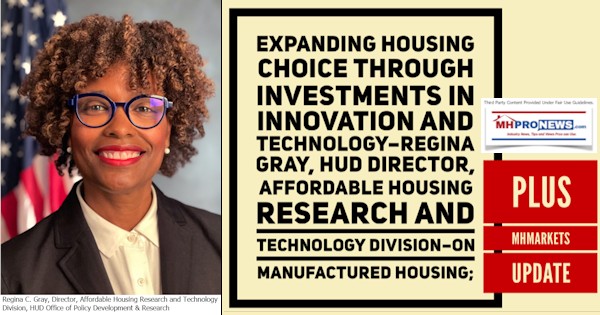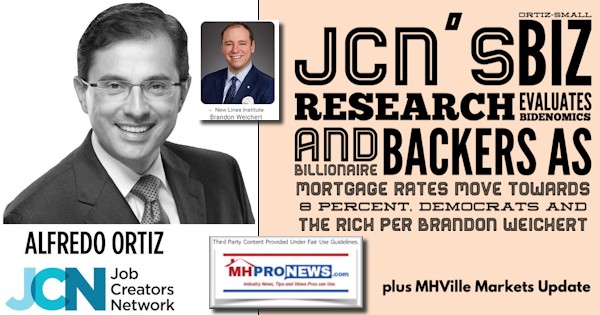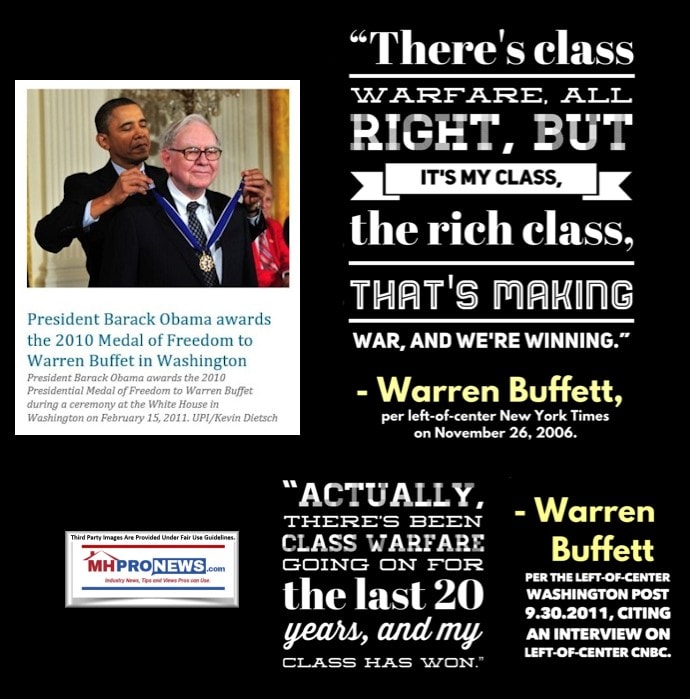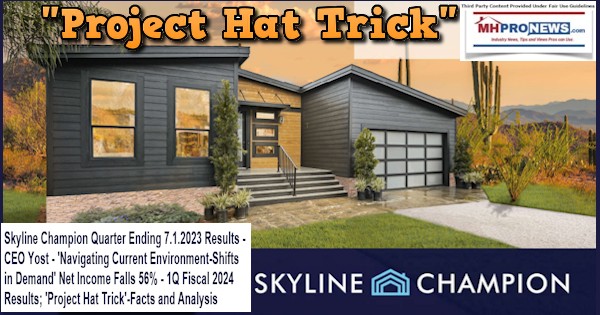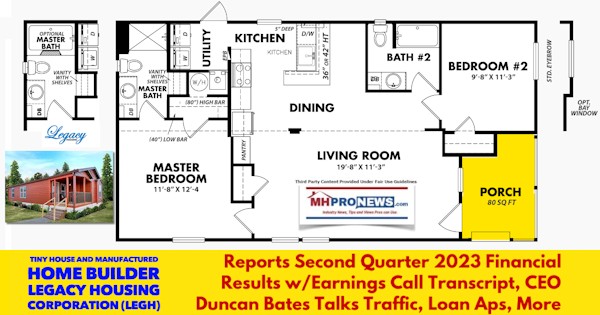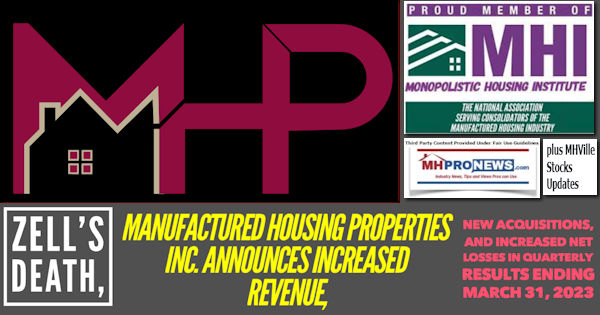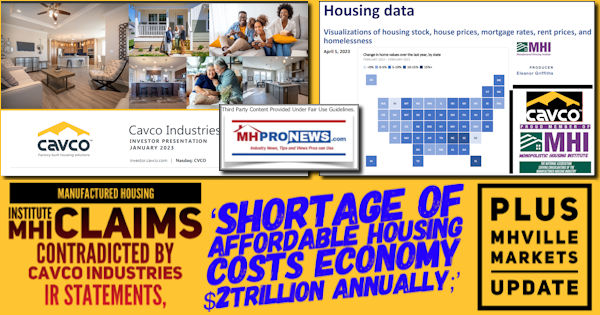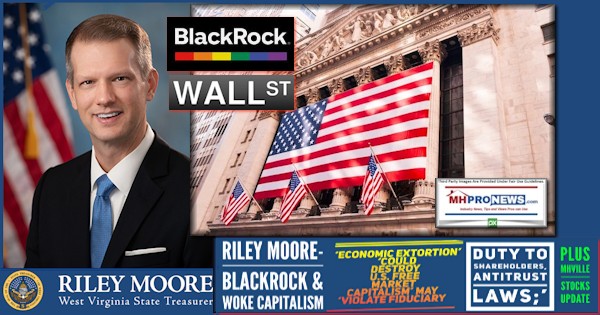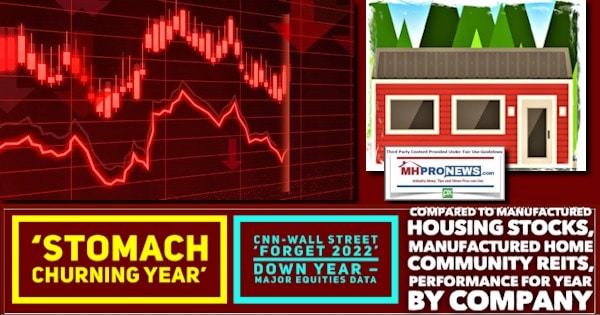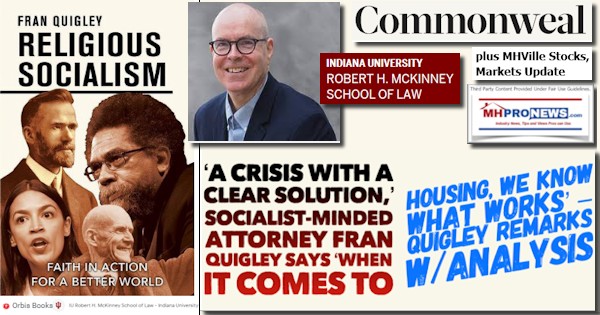
Among the remarks from attorney Fran Quigley below are the words: “the missing element in the U.S. housing crisis is not proven solutions. The missing element is the political will to act on them.” There are several elements in what follows from self-described socialist-minded attorney Quigley’s remarks that someone might disagree with, but that pull quote is arguably 100 percent true. It has clear implications for manufactured housing, which will be examined in Part III of this article. To tee up an understanding of Quigley and his thesis, the publication Sojourners says of the author and activist: “Fran Quigley directs the Health and Human Rights Clinic at Indiana University McKinney School of Law and is active in the Religion and Socialism working group of the Democratic Socialists of America.”
To further set the table for a solid understanding of attorney, law professor, and author Quigley, from the Indiana University website: “Professor Fran Quigley’s latest book, Religious Socialism: Faith in Action for a Better World, has been released by Orbis Books. The work examines the link between faith traditions and socialism and public good.
Many of the people in the book are Christian, which is the predominant faith in the United States, but Professor Quigley also includes other faith traditions who also advocate for socialism. “Socialism allows people of all major religions to fulfill their shared spiritual mandates to tangibly love and care for their sisters and brothers,” he writes in the book’s introduction. “In return, religion provides socialism with the antidote to the poison pill that has killed off generations of socialist political movements.” Advocates point to universal health care, progressive taxation, and comprehensive social services that assure safe housing and a minimum income common in other countries as positive outcomes of socialist influences.”
So at this point in time, Quigley embraces socialism – he doesn’t hide it.
Indiana University’s website also says of Quigley: “Professor Quigley is a 1987 graduate of IU McKinney, where he is a Clinical Professor of Law and teaches in the Health and Human Rights Clinic. Clinic students advocate for the rights of the poor, with a focus on individual and systemic barriers to accessing healthcare and the social determinants of health. He is the author of several academic journal articles on social justice and human rights, multiple mass media articles and columns, and five books including this most recent work. Prior to his work at the law school, he served as the first Chief of Staff for Congresswoman Julia Carson and as the executive director of ACLU of Indiana. He edits the newsletter Faith in Healthcare and contributes to and helps edit the publications of the Religious Socialism working group of the Democratic Socialists of America.”
- Against that background, Part I of this report will be information from an email from Quigley to MHProNews. Note that sharing Quigley’s thoughts are NOT an endorsement of the man, his advocacy, or thoughts. Rather, it is to give readers an understanding of the man’s thought process in his own words. It is the civil and fair-minded thing to do so that industry readers and others can grasp the strengths/weaknesses of Quigley based on an accurate reflection of his thinking.
- Part II will be excerpts from an article by Quigley in Commonweal and that article is linked herein.
- Part III is additional information with more MHProNews analysis and commentary.
- Part IV is our Daily Business News on MHProNews manufactured housing connected equities plus macro markets and time-saving insight generating left-right (CNN-Newsmax) headlines recap.
Part I – from email to MHProNews by Professor Quigley on 10.13.2023 is the following
“When It Comes to Housing, We Know What Works”
FRAN QUIGLEY | October 13, 2023
I have appreciated the opportunity to write for Commonweal several times over the years, including articles that excerpted my past books on service-sector union organizing, religious socialism, access to prescription medicines, and human rights in Haiti. (All the articles are linked here).
So I was grateful that Commonweal editors followed up the publication of my March article for them highlighting religious traditions’ shared call for social housing as a human right with a request: could I contribute a short piece that reviews what we know about successful responses to our housing crisis?
The resulting article is online now, titled “A Crisis With a Clear Solution,” and it is available to read (no paywall) here. Editors typically choose titles, but I like the title they chose here. I also like the subtitle, “When It Comes to Housing, We Know What Works.”
Because we do. As several of you pointed out in response to my recent post about the marvelous housing success in Vienna, the missing element in the U.S. housing crisis is not proven solutions. The missing element is the political will to act on them.
So I encourage you to reward the good folks at Commonweal with the clicks of checking out the article on their site. But here is the outline of the clear solutions summarized there, with links to posts and articles that go into more detail:
- Fix our court processes so that evictions are far more rare and difficult to achieve.
- Commit fully to the proven success of the Housing First approach.
- Adopt rent control to stop price-gouging of tenants.
- Commit to steps, including zoning reforms and targeted subsidies, that begin to reverse the multi-generation legacy of housing racism.
- Remedy the imbalance created by over-subsidizing wealthy landlords and homeowners by ensuring every person eligible for federal housing subsidies receives them. The short-term path to this result is universal vouchers, the long-term response is a big expansion and improvement of public housing.
How do we get there? I invoked for Commonweal readers the same theme I have echoed in this newsletter and other venues: the inspiring, growing tenants’ movement fits history’s blueprint for how impactful social change comes about. Tenants organizing to demand their rights deserve our active support.
Spoiler alert: These same themes are the focus of my forthcoming book, tentatively titled Lessons From Eviction Court. More on that to come. As always, thank you for reading. ##
Part II – From Commonweal Magazine (MHProNews Editor’s Note: Merriam Webster says that commonweal means “the general welfare.”) by Quigley are the following pull quotes from “A [Housing] Crisis with a Clear Solution.” Ellipsis (…) represent items that are edited out, but the entire article can be seen at the link above and here. The headline and subheading are those used by Commonweal.

A Crisis With a Clear Solution
When it comes to housing, we know what works.

For many of us, our nation’s housing crisis is all too evident. If we live in a city, we can see proof that nearly 600,000 Americans experience homelessness every year. If we are among the 44 million households who rent, we don’t need to be told that rent prices have skyrocketed in recent years—including an almost 20 percent increase in 2021 alone.
My students and I see the crisis up close in our Indiana law clinic. Each week, we represent tenants facing eviction. The courtrooms where we work are overflowing…eviction rates across the country are rising. The latest census reports show nearly eight million households are behind on their rent, which means they are on track to join our clients…
Twenty-five million people in the United States live in households paying more than half their income on rent, and that spells trouble, too. These families may be meeting all of their financial obligations now, but experience tells us that they may be one broken-down vehicle or unexpected child’s illness away from eviction court. Decades of research show that each eviction causes significant damage not just to a family’s finances, but also to their physical and mental health—particularly the health of the children in these displaced households.
When it comes to housing in the United States, it can be tempting to despair. But we shouldn’t, because we know how to end this crisis.
…Currently, these courts overwhelmingly favor the interests of landlords, who often use them as a quick, inexpensive tool to collect more money. There is nothing stopping us from raising the cost of eviction filings. Research from Princeton’s Eviction Lab shows that higher filing fees, even in low-income areas like Alabama, are associated with significantly lower eviction rates. Eviction rates are also low in cities where landlords are required to show “good cause” before putting tenants out and refusing to renew their leases.
We know from the experience of U.S. cities like Houston and Denver, as well as places like Finland, that a “Housing First” approach can effectively address homelessness. Prioritizing a safe, secure roof overhead as a human right, and then addressing other social-service needs, is the most humane way to support those struggling with chronic homelessness. And it works: reducing the number of people who are unhoused interrupts the common path from homelessness to arrest and incarceration.
We know that rent control works, too…Price regulation doesn’t just stop price gouging on behalf of greedy landlords. It protects renters from losing their homes when rent shocks occur…Rent control hardly condemns landlords to penury; usually such laws allow for regular rent increases that often exceed inflation, preserving the Supreme Court’s holding that landlords are entitled to a “fair return” on their investment…
We know that we can overcome gentrification and segregation. When racist housing covenants that segregated our communities were finally ruled illegal by the Supreme Court in 1948, many areas simply replaced them with zoning rules that limited neighborhoods to single-family homes with large lot sizes and parking restrictions. White neighborhoods found that these exclusionary zoning rules had the same effect as the racist rules they replaced: most people of color and nearly all low-income families were effectively barred from the communities. Sociologist Matthew Desmond calls exclusionary zoning “our politer, quieter means of promoting segregation,” and it is fully legal in most areas of the country.
But that can change, as proven by cities like Santa Fe, which adopted inclusionary zoning rules. Such rules blunt the forces of gentrification by ensuring that affordable housing can be built in areas where working-poor families, seniors, and others can access jobs, schools, health care, and public transportation. As with rent control, none of these pro-tenant regulations have slowed the development of new housing: New Jersey, in particular, has proved that housing construction can thrive and even boom in locations where both inclusionary zoning and rent control are the law.
For the millions of families whose incomes are too low to consistently afford market-rate housing, we know that public housing can be a reliable alternative…
For our clients and their families, housing costs are far and away the highest expense in their household. But other income supports like child tax credits, more robust food vouchers, and occasional stimulus checks can help keep these families housed. For evidence of their effectiveness, we need only look at the first years of the pandemic, when the expansion of benefits pushed U.S. poverty rates to the lowest they have been in recorded history—even in the midst of widespread joblessness and illness.
That is the good news. The bad news, as our clients can attest, is that these proven approaches are not the norm across the United States.
Our courts too often operate as collection and displacement factories for the benefit of corporate landlords. Homelessness is effectively criminalized in too many communities. Proposals to expand rent control and invest in public housing are derailed by advertising and lobbying blitzes funded by the private-equity firms making billions in profits on rental housing.
Well-funded NIMBY (Not in My Backyard) forces perpetuate generations of housing segregation by blocking the development of affordable housing in communities where it is desperately needed. Good-cause protection for renters was recently rebuffed in the New York legislature, which just four years ago had passed one of the country’s most ambitious pro-renter housing measures in decades.
…
History tells us that social change happens when movements are led by those who are most impacted. So it is exciting to see tenants pushing to the front of the line. The most prominent example is the People’s Action Homes Guarantee campaign, mobilizing tenants across the country under the “Rent Is Too Damn High” banner. They are demanding a tenants’ bill of rights that includes good-cause guarantees and federal action on rent control.
Alongside other housing activists, Homes Guarantee is employing tactics ranging from canvassing to occupying vacant buildings to pushing ballot initiatives. It has already notched some impressive victories. In the 2022 midterm elections, from Kansas City to Portland, Maine, to the entire state of Colorado, ballot measures to both mandate rent control and fund more affordable housing won, often by comfortable margins. … The National Low Income Housing Coalition conducts a “HOUSED” campaign to expand rental assistance to every eligible household and create a national housing-stabilization fund to provide emergency help. The HOUSED campaign is joined by Catholic Charities USA, the Union for Reform Judaism, and the national leadership of the Episcopal and Methodist churches.
After tenants traveled to the White House and Congress to press their demands, President Biden responded in January with a “Blueprint for a Renters Bill of Rights.” The Blueprint was short on tangible guarantees, but it did include a statement of federal commitment to protecting tenants and promised to evaluate expanded regulation. Organizers and tenants have returned to Washington and are going door-to-door in their communities, using Biden’s statement to continue applying pressure.
It should not be controversial to insist that housing is a human right. That right is not a reality here and now, either in the letter of the law or the daily experience of our clients and millions of others. But we know how to change that. Visionary tenants’ groups and their leaders are showing us the way. We need to make sure our elected officials listen. ##
Part III – Additional Information with More MHProNews Analysis and Commentary
Healthy discussion and debate can be done live and in person. Debate and vigorous fisking or discussion can also be done in writing, as this article aims to accomplish.
Several of Quigley’s points are based on evidence, which he has thoughtfully linked. That doesn’t mean that every linked point is accurate. The nature of paltering, intentional or perhaps coincidental, is that something true is mixed with something that isn’t true, or may be true but misleading. MHProNews has advocated for years that a grasp of the basic tactics and fallacies of logic are useful in spotting mistaken, misleading, or false reasoning. As programmers used to say: “Garbage In, Garbage Out” or as philosophers and thinkers would say, logical fallacies ought to be spotted and discounted. First, let’s look at some useful points from Quigley.
- “When It Comes to Housing, We Know What Works.” Because we do.
- For many of us, our nation’s housing crisis is all too evident. If we live in a city, we can see proof that nearly 600,000 Americans experience homelessness every year. If we are among the 44 million households who rent, we don’t need to be told that rent prices have skyrocketed in recent years—including an almost 20 percent increase in 2021 alone.
Give Quigley and others like him their due. From an MHVille perspective, where is the industry’s analogous campaign? Aren’t there more than enough full-time professionals working for the Manufactured Housing Institute (MHI) that look at some of the same facts and claims that Quigley did, but then point to how a robust dose of inclusionary placement of HUD Code manufactured homes could steadily increase intergenerational wealth creation? MHI ought to coordinate a campaign that includes their state association affiliates. There should be a steady stream of op-eds, interviews, presentations and speaking engagements that are designed to inform the public about how modern manufactured homes are the most proven permenant housing solution for the affordable housing crisis.
Not unlike Quigley’s points are similar points raised by Oregon Public Broadcasting (OPB), an affiliate of the Public Broadcasting System (PBS). Quigley is partially correct, to this extent. “When It Comes to Housing, We Know What Works.” That said, note that Quigley, like OPB, entirely missed the piece of the puzzle that manufactured housing could swiftly and steadily be addressing in a cost-effective way.
Sometimes, our industry gets caught up in the notion – with a certain sense of pride – that manufactured homes are the most proven form of unsubsidized affordable housing. That’s arguably true, based on evidence that outsiders and insiders studying the industry have known for years. But there is no need for manufactured homes to be ONLY unsubsidized housing.
During the Obama-Biden Administration, MHLivingNews shared a proposal with public officials that a sufficient number of manufactured homes being produced could in a decade or so (plus/minus) end the need for most functions at HUD entirely, by actually accomplishing the stated mission of HUD. Per the HUD website: “HUD’s mission is to create strong, sustainable, inclusive communities and quality affordable homes for all. HUD’s vision is to improve lives and strengthen communities to deliver on America’s dreams.” HUD is the primary federal regulatory of HUD Code manufactured homes. They don’t have to look beyond their own halls to find the office they claim to have recently ‘elevated,’ despite the fact that manufactured housing is demonstrably being thwarted by zoning exclusions. Don’t give lip service to manufactured homes by a head fake that moves the Office of Manufactured Housing Programs (OMHP) from one section of HUD to another. Look with a fresh set of eyes at what manufactured housing could actually do to alleviate the poverty and problems that Quigley, OPB, and others have pointed out.
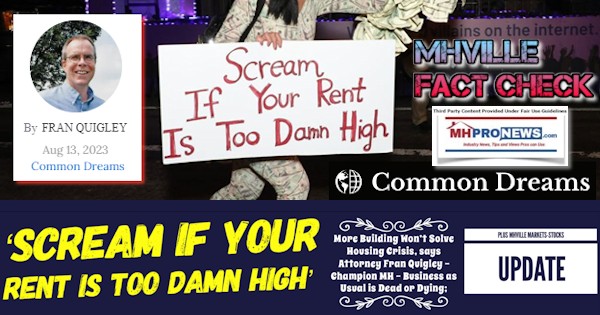
MHProNews asked Quigley to respond to concerns about his thesis. Part of what was mentioned by MHProNews that: “much of what you [Quigley] said is accurate, but you failed in that Common Dreams article to mention manufactured housing at all. Yet, you seem to be aware of some of the obviously negative issues in our industry.” Quigley previously slammed Frank Rolfe and those like him. Manufactured Home Living News (MHLivingNews) in a fact check and analysis noted that Quigley said: “Wall Street Is Holding a Gun to Mobile Home Residents’ Heads” said the following.
- “In mobile home parks around the country, millions of tenants and owners are being mercilessly exploited and regularly evicted, often by giant Wall Street firms like Blackstone.”
- “Frank Rolfe, whose two hundred fifty mobile home parks make him one of the top five owners in the industry, boasts, “We’re like a Waffle House where everyone is chained to the booths.” Rolfe and his partner also operate Mobile Home University, which crows about the benefits of holding a gun to the head of park residents: “The fact that tenants can’t afford the $5,000 it costs to move a mobile home keeps revenues stable and makes it easy to raise rents without losing any occupancy,” the law professor stated. That partner of Rolfe’s is Dave Reynolds. They reportedly get financial support from private equity firms, as facts, evidence, and related insights from the reports linked below highlighted.
Quigley knows about manufactured housing. He opted in Frustration and Hope to focus on the negative issues plaguing the industry. Quigley didn’t respond to the outreach and inquiry. The information provided herein from MHProNews at this point stands uncontested by Quigley. In the articles by Quigley above, he never used the words “manufactured home,” “manufactured housing,” “factory-built housing” “prefab” or even the dated and often errantly used terminology of “mobile home.”
According to MPA: “HUD will get $65.7 billion spending budget in 2022 omnibus bill.” The Urban Institute said: “in 2020, state and local governments spent $59 billion on housing and community development.” While there may be some overlap, there may be over $125 billion. According to the Census Bureau, “as of March 2022, the national average cost of a single-wide manufactured home is $87,300.” According to Minnesota’s Manufactured Housing Working Group research (2020), “to construct a new single family manufactured home development including all neighborhood infrastructure costs, the typical price per unit is $150,000. In comparison, a high density apartment complex usually costs $250,000 per unit to construct.”
Using the data from Minnesota, consider the following math. $125,000,000,000/150,000 =833,333. In a decade, the amount of money being spent on affordable housing programs could create 8.333 million affordable manufactured homes installed on a developed lot. Cavco Industries said that 6 million affordable housing units are needed. While the National Association of Realtors (NAR) has been ‘all over the map’ on what that number is, they have often ranged from 5.5 million to some 8.3 million. Quigley cited the National Low Income Housing Coalition (NLIHC) in his argument. Per their annual report: “The Gap: A Shortage of Affordable Homes, a new report released today by the National Low Income Housing Coalition (NLIHC), finds a shortage of 7.2 million affordable and available rental homes for extremely low income (ELI) renter households, those with incomes at or below the poverty level or 30% of their area median income.” So, based on those sources, that 8.3 million homes that current state or federal spending is already paying could over the course of a decade pay for all housing those sources say are needed.
Of course, that’s not how it would work in practice. People currently dependent on local, state, or federal programs would have ongoing needs. A system is currently in place that rewards a limited number of landlords and housing providers. A formula would need to be developed, factories would have to gear up, developing would need to occur. But the point is that a system could be established that would eventually save taxpayers $125 billion annually. Most housing programs could eventually be largely phased out, save the need for HUD to regulate manufactured housing. Over the course of a decade that would be $1.25 trillion dollars saved by providing affordable manufactured homes for those in need. Many of those could become homeowners, not just renters. Intergenerational wealth building could occur.
Where are the leaders at MHI in promoting solutions like that, with more necessary details fleshed out? Not to say that is the only way that such a vision of a future with millions of more manufactured homes could be deployed to solve the affordable housing crisis. But that is but one method, that an authentic use of manufactured housing advocacy might accomplish.
What That Outline Reveals
Quigley, it was noted above, knows about manufactured homes. He was contacted by MHProNews before his email quoted above. Yet, Quigley ignored manufactured housing completely in his ‘solutions.’ Quigley seems to be a committed leftist. He wants a Democratic Socialist future. Yet, as the OPB report and analysis revealed, the kinds of programs that Quigley is advocating have not solved the housing problem or homelessness crisis anywhere in the U.S. Both California and the federal government are spending more money than before on housing programs. The result is that there is still more homelessness in California and nationally.
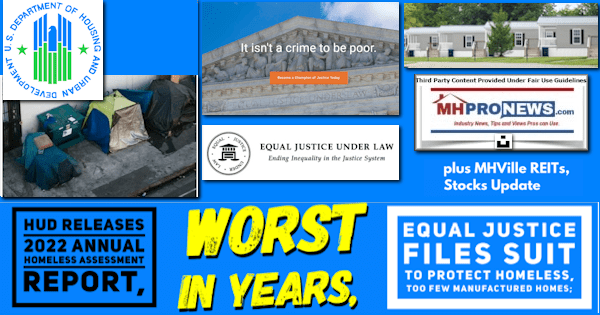
MHProNews introduced the industry to the Rev. Donald Tye Jr. Tye told MHProNews that for a time, he worked in social services programs. One day, it dawned on him that if the actually solved the problems that they claim to want to solve, their job(s) would be eliminated. Following that realization, Tye said he departed that work. Tye is an advocate for affordable factory-built housing, which he said his own family benefited from. Tye specifically advocated for an enforcement by HUD of the “enhanced preemption” provision of HUD Code manufactured homes. He also advocated for an end to derogatory terminology being used to describe manufactured homes.

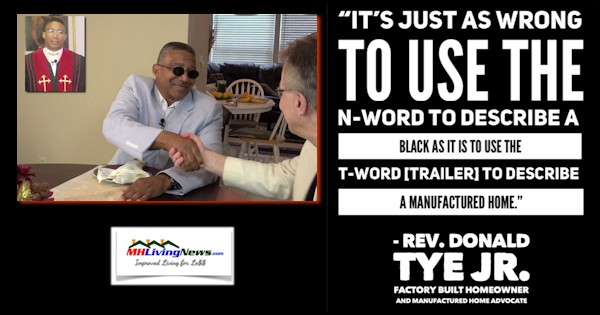
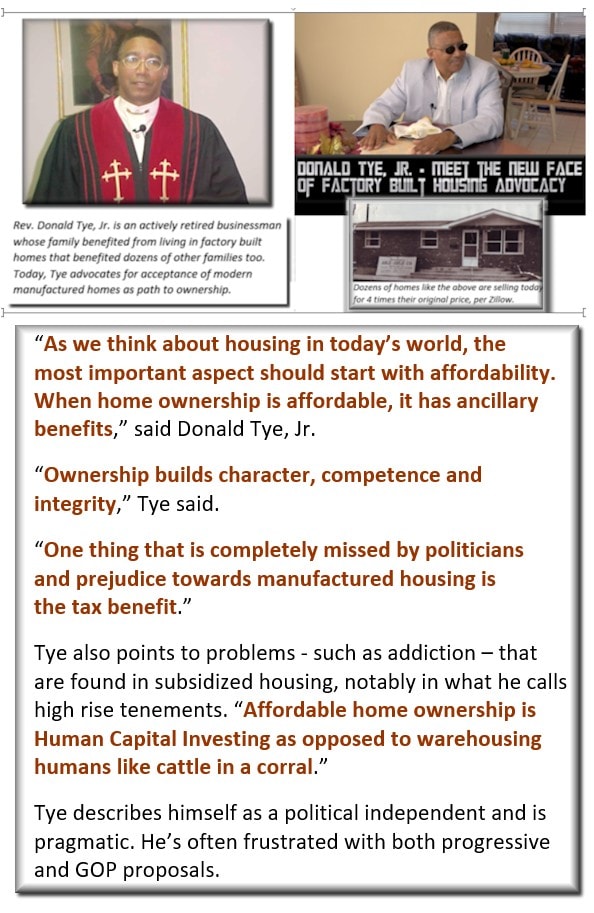
Quigley is obviously an intelligent fellow. He has worked with his students to advocate for those facing eviction. The case can be made that several aspects of Quigley’s work and efforts have benefited specific individuals.
That said, Quigley’s pushing socialism and socialized housing as the solution for the affordable housing crisis is a form of historic fiction. Rent control doesn’t work as advertised, as pragmatic thinking people from the left and right have observed. It may be a useful band aid, a temporary fix, if it was treated as such. That’s what manufactured home resident, homeowner, and volunteer advocate Robert “Bob” Van Cleef argued in favor of in the article posted below.
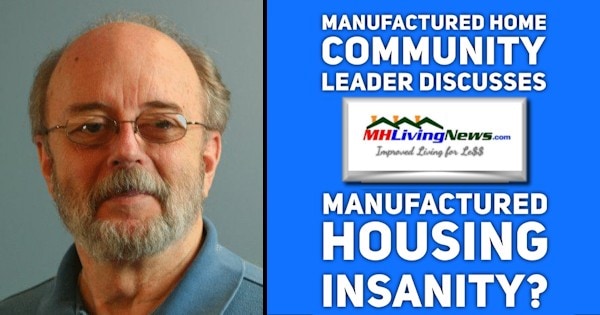
Quigley is appealing to an array of Christians and other religious groups, to push his vision of a socialist utopia on Americans. But Mayor Pro-Tem Ivory Mewborn, a person of prayer and faith that is an ordained minister, didn’t turn to socialism as the solution. Mewburn wanted to see a kind of public-private partnership emerge in what he called “Plant a Home” to turn vacant lots into locations for affordable manufactured homes. But when Rev. Mewborn turned to MHI for help to make his vision begin for a black couple in North Carolina, MHI CEO Lesli Gooch gave him words of support, but reportedly no actually supportive effort.
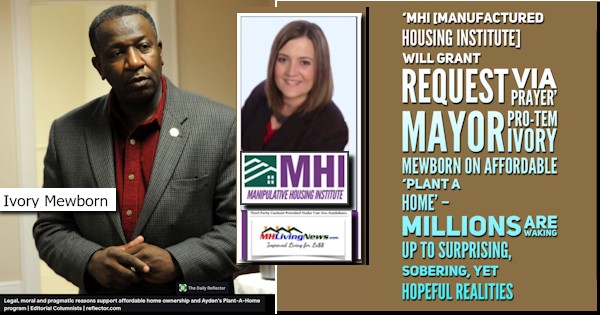
In a recent deep dive using artificial intelligence and other sources, MHProNews exposed the apparent corruption at MHI apparently involving CEO Gooch. Gooch, MHI leaders, and outside attorneys used by MHI have thus far declined commenting on those allegations.
Quigley could turn his legal skills to pushing for an authentically proven solution that doesn’t require abolishing free enterprise (as socialism seeks to do). As the Hoover Institute stated: “The socialism of the twentieth century was primarily economic in orientation: it rejected capitalism and favored state control over the economy.” Investopedia said: “Capitalism promotes free market conditions, whereas socialism incorporates certain elements of centralized economic planning.” In an article on the Heritage Foundation website insightfully notes that: “The U.S. economic system today is neither free enterprise nor socialism. It is a hybrid of the two with a strong element of crony capitalism.”
That quoted point on Heritage by David Burton made an apt point. Burton is focused “on securities law, tax matters, financial privacy, regulatory and administrative law issues and entrepreneurship.” Heritage offered this summary of Burton’s thesis.

KEY TAKEAWAYS
- The U.S. economic system today is a hybrid of free enterprise and socialism with a strong element of crony capitalism.
- Socialism has a long record of failure and has been tried many dozens of times. It is arithmetically impossible to pay for the progressive agenda by taxing the rich.
- In addition to being ethically superior to socialism, free enterprise has a record of increasing incomes and reducing poverty.”
Note Burton/Heritage cited point: “It is arithmetically impossible to pay for the progressive agenda by taxing the rich.” Quigley is promoting a cause and a cure that doesn’t work, never has, and never will.
Once socialists came to power in Nazi Germany (NAZI means the National Socialists Workers Party), in Russia, China, Cuba, North Korea, or Venezuela (to name but a few examples), the regimes that came to power routinely became more oppressive and more authoritarian than the ones that they replaced. An estimated 100 million people, perhaps more, died at the hands of their own governments, per researchers into such socialist and communist regimes.
In response to a question from MHProNews to Bing’s AI function, Bing provided the following insights.
When the Soviet Union d
1. scholar.harvard.edu 2. cambridge.org 3. newstatesman.com 4. journalofdemocracy.org 5. doi.org”
MHProNews asked Bing’s AI function the following and related question:
> “Until Western investments began to flow into Communist China, isn’t it true that China was largely impoverished?”


